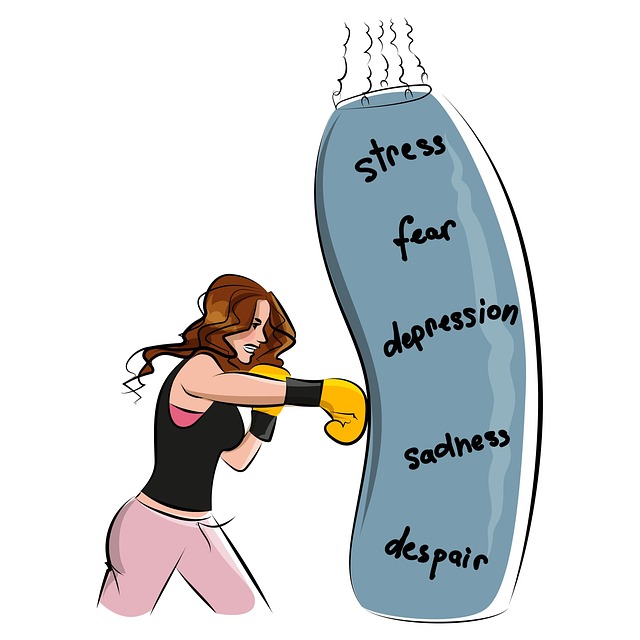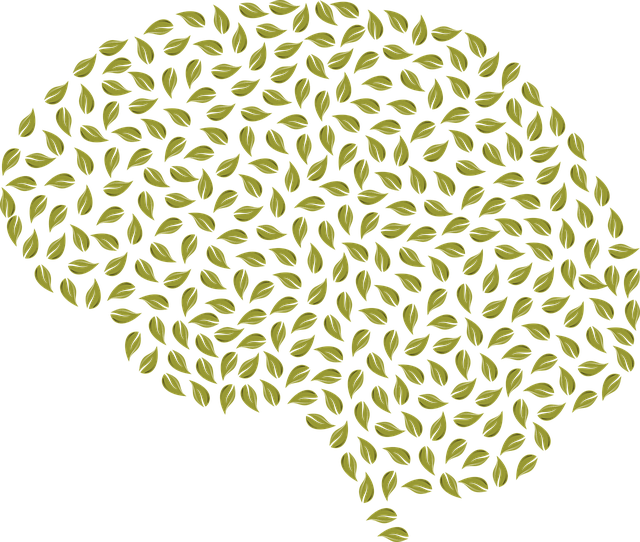Mental wellness is a holistic concept focusing on self-care as a cornerstone for personal growth. Centennial Sexual Addiction Therapy emphasizes understanding mental health, offering personalized approaches and tailored routines incorporating mindfulness, coping skills, and creative pursuits. Balanced self-care involves meditation, exercise, journaling, and nature connections, fostered through professional support from Trauma Support Services. Overcoming barriers like past traumas or addiction requires culturally competent care and positive thinking, leading to improved mental wellness and enhanced quality of life. This journey is ongoing, demanding commitment and flexibility, with regular reflection crucial for a dynamic self-care routine that promotes long-term well-being.
Developing a mental wellness self-care routine is an essential aspect of maintaining a healthy mind. In today’s fast-paced world, prioritizing self-care can be transformative. This article guides you through a comprehensive journey towards enhancing your mental wellness. From understanding the foundation of self-care to identifying personal needs, creating balanced routines, and addressing specific challenges, we offer strategies tailored for your well-being. Discover how to cultivate a sustainable practice that evolves with your life, inspired by Centennial Sexual Addiction Therapy’s holistic approach to mental health management.
- Understanding Mental Wellness and Self-Care: The Foundation of a Healthy Mind
- Identifying Personal Needs: Unraveling Your Unique Self-Care Journey
- Creating a Balanced Routine: Integrating Different Self-Care Practices
- Addressing Specific Challenges: Strategies for Overcoming Barriers to Mental Wellness
- Sustaining and Evolving Your Self-Care Routine: Long-Term Mental Health Management
Understanding Mental Wellness and Self-Care: The Foundation of a Healthy Mind

Mental wellness is a holistic concept encompassing emotional, psychological, and social well-being. It’s about recognizing and nurturing our mental health, just as we would physical health. At its core, self-care plays a pivotal role in maintaining a healthy mind. This involves a range of practices tailored to an individual’s unique needs, promoting resilience, and fostering a positive relationship with oneself.
Centennial Sexual Addiction Therapy emphasizes the importance of understanding mental wellness as a foundation for personal growth. Effective self-care routines incorporate strategies such as risk management planning for mental health professionals, coping skills development, and mindfulness meditation. By prioritizing these aspects, individuals can enhance their overall well-being, navigate life’s challenges with greater ease, and cultivate a deeper sense of contentment and fulfillment.
Identifying Personal Needs: Unraveling Your Unique Self-Care Journey

Every individual’s journey to mental wellness is unique, much like their fingerprint. This is why Identifying Personal Needs is a crucial first step in crafting a meaningful self-care routine. At Centennial Sexual Addiction Therapy, we understand that what works for one person might not work for another. That’s why our approach is tailored to each individual’s specific needs and challenges.
Self-care isn’t just about checking off boxes or following a trendy list; it’s about listening to your inner voice, understanding your triggers, and nurturing your mind, body, and spirit in ways that resonate with you. This might involve incorporating activities like mindfulness meditation, engaging in creative pursuits, connecting with nature, practicing Social Skills Training, or learning Empathy Building Strategies. Ultimately, a successful self-care routine is one that promotes balance, enhances resilience, and allows you to thrive rather than simply survive.
Creating a Balanced Routine: Integrating Different Self-Care Practices

Developing a balanced self-care routine is essential for maintaining mental wellness, encompassing various practices that cater to different aspects of your well-being. At Centennial Sexual Addiction Therapy, we understand the significance of a holistic approach to healing. Integrating activities such as mindfulness meditation, regular exercise, and creative outlets alongside professional support from Trauma Support Services can significantly enhance resilience building. By balancing these elements, you create a supportive system that addresses emotional, physical, and spiritual needs.
Mental illness stigma reduction efforts also benefit from this diverse routine. Engaging in self-care practices like journaling or spending time in nature allows for introspection and reflection, fostering self-acceptance and understanding. This, in turn, can lead to more proactive mental wellness management and improved coping strategies. Remember, a well-rounded routine encourages overall growth and resilience, making it an effective tool in navigating life’s challenges.
Addressing Specific Challenges: Strategies for Overcoming Barriers to Mental Wellness

Many individuals face unique challenges when it comes to prioritizing their mental wellness due to factors like past traumas, chronic conditions, or personal struggles such as Centennial Sexual Addiction Therapy issues. Overcoming these barriers requires tailored strategies and a comprehensive approach. One effective method is seeking professional support from a healthcare provider with specialized training in cultural competency, ensuring a safe and understanding environment for vulnerable topics. This can foster open communication and facilitate personalized treatment plans.
Additionally, cultivating positive thinking and building self-confidence are powerful tools. Engaging in regular self-care practices, such as mindfulness exercises or journaling, can help manage stress and promote a sense of well-being. By addressing these specific challenges head-on, individuals can develop resilient mental wellness routines that enhance their overall quality of life.
Sustaining and Evolving Your Self-Care Routine: Long-Term Mental Health Management

Building a self-care routine is an ongoing process that requires dedication and adaptability, especially when prioritizing long-term mental health management. It’s akin to tending to a garden; initially, you plant the seeds, nurture them with consistent care, and over time, they grow into a vibrant, flourishing landscape. Similarly, your self-care routine should start as a set of manageable practices and evolve as your needs change and new insights emerge.
Just as Centennial Sexual Addiction Therapy offers specialized support for long-term recovery, developing a dynamic self-care routine can be tailored to address specific mental health challenges. This involves regular reflection and adjustment, ensuring that activities promoting mental wellness remain relevant and effective. Incorporating practices like compassion cultivation, as highlighted in Mental Health Policy Analysis and Advocacy, can foster resilience and self-acceptance, while also learning to set healthy boundaries is crucial, as emphasized in the Risk Assessment for Mental Health Professionals. Over time, this evolves into a sustainable rhythm that supports overall well-being.
Developing a personalized mental wellness self-care routine is a transformative journey that empowers individuals to take charge of their emotional well-being. By understanding the importance of self-care, identifying individual needs, and creating a balanced practice, one can effectively navigate challenges and foster long-term mental health resilience. Integrating various strategies, such as mindfulness, therapy (including Centennial Sexual Addiction Therapy), and healthy habits, allows for a holistic approach to wellness. Remember, consistency is key; regularly reviewing and adapting your self-care routine ensures it remains a powerful tool for managing mental health throughout life’s complexities.














